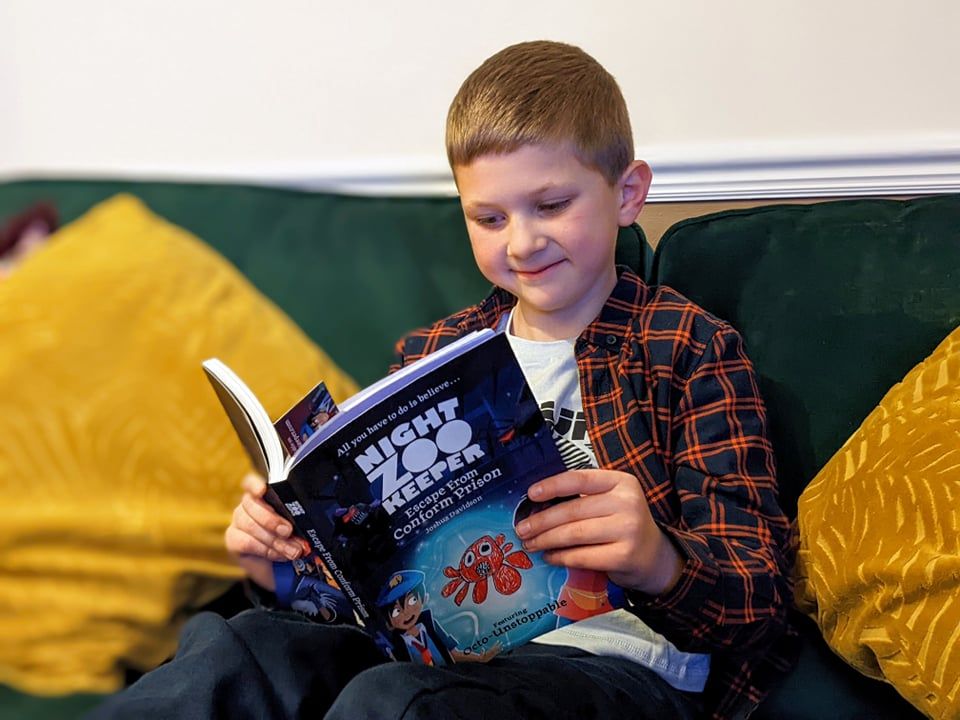Why are Reading and Writing Important?


Reading and writing are essential skills that work hand-in-hand to form the building blocks of communication. Being able to read and write allows us to learn more about the world around us and to interact effectively with others.
How do reading and writing impact everyday life?
Today, reading and writing are the main means of communication, especially with the growing use of social media and online platforms that can be used for entertainment, shopping, work, and school. Being able to read and write is crucial to daily life, as these skills enable people to communicate in a variety of ways, including staying in touch with relatives, sharing thoughts and opinions, and building knowledge of different topics.
While some start earlier, most people’s first encounter with reading and writing is at primary/elementary school.
As children progress through primary education, the skills they develop become the foundation for more advanced studies in high school and beyond. Becoming proficient readers and better writers at an early age sets children up for success in various subjects, even those not directly linked to English, including math and science.
The ability to read and write is not just about completing assignments and passing tests. It prepares children for a future where effective communication is essential. By cultivating these skills early on, you can support the way your child embraces challenges and thinks critically.
Reading and writing are powerful tools that go beyond the classroom. They open doors to a bright and promising future, and shape the way children engage with the world in general.
What are the benefits of reading and writing?
Reading and writing are essential skills to master, and while perfecting them may seem challenging at first, here are some benefits of becoming a fluent reader and writer:
Deeper understanding through reading
Reading allows people to find new hobbies, discover different interests, and learn more about topics they’re passionate about. It encourages them to stay curious and motivates them to constantly work on broadening their horizons, especially when presented with varied opinions and viewpoints.
Critical thinking skills
As learners engage with different pieces of writing, they are constantly prompted to think critically. Analyzing characters, understanding different narrative structures, and making connections between ideas foster the development of important critical thinking skills. The ability to process information and draw meaningful conclusions will become a valuable asset in their academic and personal lives, especially as they get older and are prompted to make more difficult decisions.
Self-expression & wellbeing
Writing boosts wellbeing by encouraging self-expression. This skill inspires people to share their thoughts, feelings, and ideas on paper, boosting emotional intelligence, articulation, and communication skills.
Journaling is a great tool for those who struggle to express themselves, as it allows them to share their own opinions while eliminating the fear of judgement from peers, parents, or educators. It’s also an effective coping mechanism for those who experience anxiety.
A better understanding of the world
Through reading, people gain insights into diverse cultures, experiences, and viewpoints, expanding their understanding of the world around them. Both skills equip learners to communicate effectively and contribute meaningfully to their communities, which is also a great way to improve their wellbeing!

How to teach reading and writing
It’s important that a person's reading and writing journey starts as early as possible. Here are some top tips on how you can teach or support your child’s development of reading and writing skills:
Focus on reading comprehension
Reading comprehension is the ability to understand and interpret a text. Help your child improve this skill by asking questions during and after reading sessions. For example, get them to summarize the story they’ve just read, or express their thoughts on specific characters and events. This is a great way to test their understanding of the text and boost their critical thinking skills.
Introduce new words and expand vocabulary
Reading introduces children to new words, boosting their vocabulary. To expand your child’s vocabulary even more, incorporate activities that go beyond defining new words they come across in books. Encourage your child to use these words in sentences, helping them understand the concepts of sentence structure and meaning. This not only boosts reading comprehension, but also elevates their language skills to a higher level.
Show how writing helps in everyday life
From composing emails to writing grocery lists, your child should understand the real-world relevance of writing. This connection makes the learning experience more meaningful and closes the gap between writing as an academic skill and as a useful everyday tool.
Embrace the writing process
Encourage your child to view writing as a fun process! Practicing this skill doesn’t have to be boring or overwhelming, and there are many ways to get your child excited to craft their own writing pieces.
You can start by getting your child to brainstorm story ideas. Then, ask them to draw their main character, or the setting their story takes place in. You can also set different writing goals to keep your child motivated to write on. Check out our step-by-step creative writing guide for more tips and ideas on how to make writing fun!
Encourage expressing ideas in their own words
Writing is all about expressing thoughts in one's own words. Encourage your child to retell a story they’ve read recently using their unique voice. This practice not only reinforces understanding but also boosts self-expression and creativity.
Practice sentence structure
Your child needs to understand sentence structure to create great pieces of writing. Start with getting your child to craft simple sentences that describe the room they’re in, their favorite food, or the current season. This exercise will help them understand how to effectively communicate their ideas, and help them move on to writing more complex sentences.
Use fun reading & writing resources
There are thousands of reading and writing resources out there to help your child on this journey to become a better reader and writer. These include daily writing prompts, reading goals, reading and writing forums, and much more.
A great example of this is Night Zookeeper!

Night Zookeeper is an online program that uses gamified learning to make reading & writing fun for children aged six to twelve! The program covers all aspects of reading and writing, including spelling, punctuation and grammar, through an array of activities, from interactive lessons, to pre-planned assignments, to creative writing prompts.
Follow us on social media


Make Reading & Writing Fantastically Fun!
- Award-winning reading & writing program for kids
- Improves spelling, grammar, punctuation & vocabulary
- Over 1,000 different learning games and activities


Why Is Reading Important For Children?


“My child hates writing.” What do I do?


How Creative Writing Improves Children's Wellbeing


